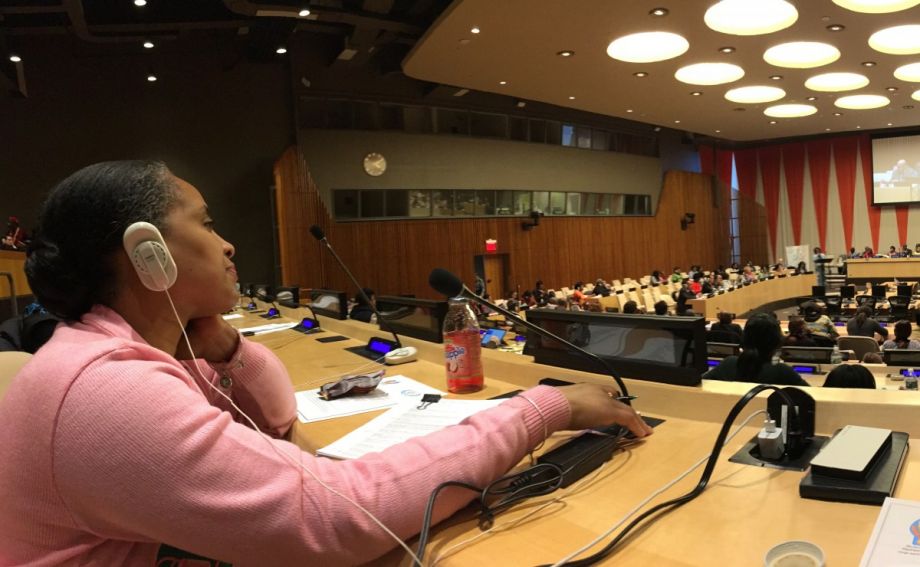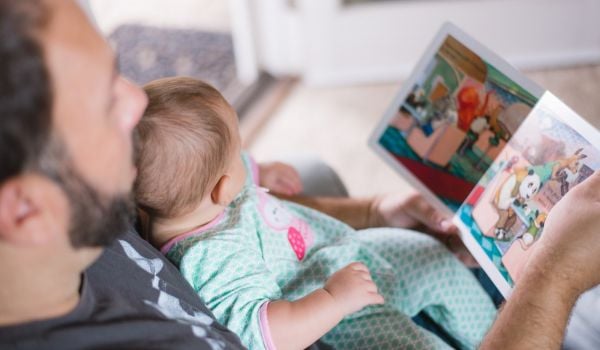Karima Bouchenafa grew up in Philadelphia’s Germantown neighborhood, surrounded by history. At the intersection of Germantown Avenue and Wister Street, a sign commemorates the first protest against slavery, staged by German Quakers in 1688, 92 years before America’s first state abolition law. The Johnson House, also on Germantown Avenue, was a stop along the Underground Railroad.
“My mom would make sure we paid attention to these historic places we walked past,” Bouchenafa remembers.
She’d soon become part of that kind of history, in her own way. Bouchenafa was among the earliest young women to enroll at Central High School. Founded in 1836 as the crowning glory of Philly’s public school system, it only started admitting girls in 1983, after a series of lawsuits and appeals going back to 1975. She almost didn’t get to go to the high school of her dreams; her parents weren’t sure at first, until they got to know the school better. One day, she says, her dad came home after making his own drive-by inspection. She remembers him saying he saw boys and girls there from all over, like a mini United Nations.
“I was like ‘yeah I know, Dad, that’s why I wanna go there,’” says Bouchenafa, who graduated from Central in 1990 (the 249th Graduating Class, as Central alums refer to themselves).
Last week, Bouchenafa found herself at the real United Nations headquarters in NYC. She joined thousands of ministers, legislators, ambassadors, policymakers and other high-level dignitaries as well as grassroots organizers and advocates for the 61st UN Commission on the Status of Women. It was Bouchenafa’s first time as an official delegate.
“It’s so interesting for me to be here and see how women all around the world are asserting that same sense of yes, this is who we are, this is what we do, this is our value,” says Bouchenafa.
Bouchenafa, who still owns a home near where she grew up in Philly, applied to be a delegate to this year’s commission through her membership with the United Nations Association of Greater Philadelphia. Founded by Eleanor Roosevelt, the UN Association has local chapters all over the country that mobilize grassroots support for U.S. involvement in the UN. While it can be difficult to always see how such high-level, global gatherings can ultimately lead to substantive policy changes on the ground, Bouchenafa believes the networking and exposure to foreign perspectives has value for those who are lucky enough to attend.
“It’s educational to see what challenges they face and how they’re responding to those challenges,” she says.
The theme of this year’s Commission was “women’s economic empowerment in the changing world of work.” Besides the 18 “official” meetings to set policy priorities that shape how UN resources will get deployed to support gender equality and women’s rights going forward, hundreds of side events offered opportunities to discuss progress and status on various fronts for gender equality or women’s rights around the world.
Bouchenafa attended one particularly crowded discussion breaking down policies designed to foster gender equality in the workforce, including paid family leave (for up to three years in some cases) and Hungary’s grandmother’s pension. The latter is a relatively new program designed to encourage early retirement for grandmothers who wish to stay at home with newborn grandchildren, allowing new mothers to return to work sooner. That may not work for all nations, Bouchenafa admits, but it’s interesting to see what countries come up with when they make it a priority to consider realities for women in the economy.
At another discussion Bouchenafa attended, actress and activist Ashley Judd moderated an expert panel on making the UN more feminist. No woman has ever been secretary general of the UN, and while there has been some progress, women still only hold around a quarter of the organization’s under-secretary and deputy secretary positions. Fighting for gender equality in a historically male-dominated institution is a familiar battle for Bouchenafa, who has worked in higher education since 2000.
“This whole idea of women’s rights and gender equality, it’s interesting to me that we have to fight for it and agitate for it, because it’s almost not even a question for me, in a sense, the way I was raised and the women I’m surrounded by,” says Bouchenafa, who was born and raised Muslim.
Besides her mother, sister, other family and neighbors, since 2003 Bouchenafa has also been surrounded by the women of Alpha Kappa Alpha (AKA), the historically black sorority with over 70,000 members worldwide, including novelist Toni Morrison, Mae Jemison (the first black woman NASA astronaut to travel to space), and Liberia President Ellen Johnson-Sirleaf. In 2014, AKA partnered with the UN Association, which led Bouchenafa to join the Greater Philly UN Association. She donned the sorority’s signature pink and bright green attire throughout her time in New York.
Sorority members are charged with making the group’s service priorities come to life where they live, and AKA has already asked local chapters to participate in implementing UN Association’s Global Classrooms Project, which includes the familiar Model UN programming for youth. “It hasn’t been something that a lot of students I work with have been exposed to,” says Bouchenafa, who teaches at the Community College of Philadelphia in addition to being an assistant dean at Rutgers University.
Last year, as part of the UN Association’s members day at the UN, Bouchenafa took a delegation of Rutgers students with her; after, they started a GenUN chapter at Rutgers, making it part of the UN Association’s official college campus network.
“I know so many people invested in me, in my development as a person. That’s the least I can do to turn around and do that for other folks,” Bouchenafa says.
Well, she did one more thing: Her mother joined her at the UN last Friday. They had lunch in the Delegates Dining Room.
“Being at the commission reaffirmed the vision of myself that my parents tried to give me,” she says. “I’m a citizen of the world. I’m from this country, this city, this neighborhood, but there’s a back story to how all that came to be.”
The Equity Factor is made possible with the support of the Surdna Foundation.

Oscar is Next City's senior economic justice correspondent. He previously served as Next City’s editor from 2018-2019, and was a Next City Equitable Cities Fellow from 2015-2016. Since 2011, Oscar has covered community development finance, community banking, impact investing, economic development, housing and more for media outlets such as Shelterforce, B Magazine, Impact Alpha and Fast Company.
Follow Oscar .(JavaScript must be enabled to view this email address)

















